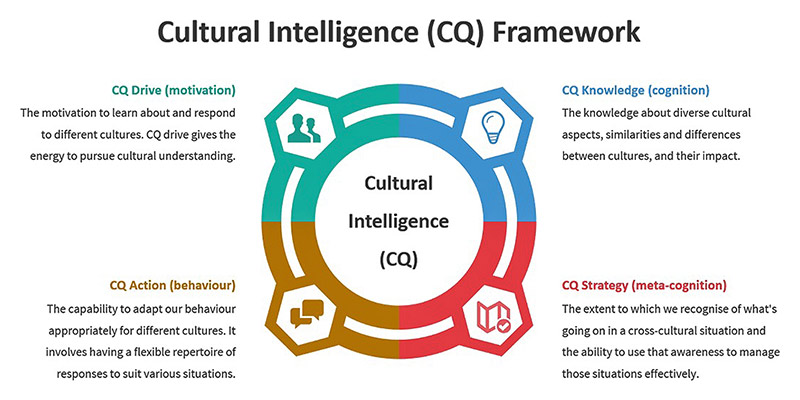Exploring Cultural Sensitivity in Digital Marketing: Lessons from Global Campaigns
Meta Description: Discover the importance of cultural sensitivity in digital marketing. Explore case studies, missteps, and strategies to create effective global campaigns that foster inclusivity and respect for diversity.
In today’s interconnected world, cultural sensitivity isn't just a nice-to-have; it's a necessity for businesses aiming to succeed in global markets. With over five years of experience in SEO and a track record of helping more than 20 companies optimize their digital marketing strategies, I understand that understanding cultural nuances is vital for marketers. This blog strives to raise awareness about the importance of cultural sensitivity in digital marketing and provide actionable insights to enhance marketing strategies.
The Importance of Cultural Sensitivity in Digital Marketing
As businesses expand across borders, understanding the cultural dynamics of different markets becomes increasingly crucial. A culturally sensitive approach can help:
- Improve engagement: Knowing how to tailor messages to resonate with specific cultures boosts consumer connection and loyalty.
- Avoid pitfalls: Being aware of cultural sensibilities helps prevent marketing missteps that can lead to public relations crises.
- Foster inclusivity: Embracing cultural differences creates a more inclusive brand identity, appealing to a diverse customer base.
The Global Landscape: A Call to Action
As we walk through the global marketing landscape, it’s essential to recognize that cultural sensitivity plays a pivotal role in shaping perceptions and success. How brands navigate this intricate web of cultural nuances can spell the difference between a viral success and a public relations disaster.
Lessons from Noteworthy Global Campaigns
Successful Campaigns That Embraced Cultural Sensitivity
Coca-Cola's "Share a Coke" Campaign
One of the most celebrated examples of cultural sensitivity is Coca-Cola’s "Share a Coke" campaign. By personalizing their product with popular names in various languages, Coca-Cola connected deeply with consumers around the world. In markets like Australia, where the campaign initially launched, this strategy significantly driven customer engagement and loyalty. The result? A stunning 2% increase in sales in the first year alone.

Nike's "Dream Crazy" Campaign
Nike took cultural sensitivity to heart in their "Dream Crazy" campaign, featuring the controversial figure Colin Kaepernick. While it sparked debate, the campaign successfully highlighted social issues and resonated with younger demographics. Data shows that Nike sales surged by 31% post-launch, underscoring how embracing social movements can amplify brand messaging.

Missteps: Lessons Learned
Pepsi's Kendall Jenner Ad
In contrast, Pepsi’s attempt to tackle social justice with their Kendall Jenner ad backfired spectacularly. The backlash highlighted a significant lack of understanding surrounding serious cultural movements. As a result, the brand faced a $1 billion loss in market capitalization and a tarnished public image.
H&M's “Coolest Monkey” Hoodie Controversy
Another infamous example is H&M's “Coolest Monkey” hoodie, which faced immense backlash for perceived racial insensitivity. This failure emphasized how cultural insensitivity can lead to damaging accusations and a dip in consumer trust, ultimately affecting sales and brand reputation.
Understanding Cultural Differences in Consumer Behavior
Consumer Preferences by Region
Understanding that consumer behavior varies extensively across regions is crucial. Surveys show that 72% of consumers prefer brands that exhibit cultural awareness in their advertising. Such statistics highlight the importance of adapting messaging for maximum resonance.
| Region | Percentage of Consumers Preferring Culturally Relevant Ads |
|---|---|
| North America | 75% |
| Europe | 70% |
| Asia | 80% |
| South America | 68% |
According to Nielsen, culturally aware brands are more likely to see an increase in purchases, proving that cultural sensitivity positively influences consumer preferences.
The Economic Impact of Cultural Sensitivity
Marketers must also consider the economic significance of culturally sensitive marketing. The global luxury market is projected to reach $450 billion by 2025, making it imperative for brands to engage and connect with an increasingly diverse consumer base.
Establishing Ethical Standards in Cultural Marketing
Adopting an Ethical Framework
Understanding and implementing ethical guidelines is vital in marketing. The Cultural Intelligence (CQ) framework can help ensure that marketing practices respect and appreciate cultural differences. Organizations should encourage training programs for their teams to foster greater cultural understanding, which can enhance the effectiveness of marketing campaigns.

The Case for Cultural Sensitivity Training
Many companies, such as Procter & Gamble, have implemented successful cultural sensitivity training programs to educate their teams on the importance of culturally aware practices. Empirical evidence shows that these initiatives lead to improved marketing strategies and reduced instances of cultural insensitivity.
The Future of Marketing: Adapting to Evolving Cultural Trends
Staying Ahead of Cultural Nuances
With the digital landscape constantly evolving, marketers must stay informed about emerging cultural trends. Incorporating cultural awareness into marketing strategies can create more meaningful connections, fostering loyalty and enhancing brand reputation in the long run.
Conclusion: A Call for Culturally Sensitive Marketing Practices
In an increasingly global market, culturally sensitive marketing practices are not just a moral imperative but a business necessity. As marketers, we must be vigilant in avoiding stereotypes and ensuring our campaigns reflect respect and understanding for diverse cultures.
By learning from successful and unsuccessful global campaigns, we can foster a more inclusive brand identity that resonates with audiences everywhere. Explore further content on building effective marketing strategies, or sign up for our newsletter for more insights on digital marketing and cultural sensitivity. Let’s embrace inclusivity and make a measurable impact in today’s global marketplace!
